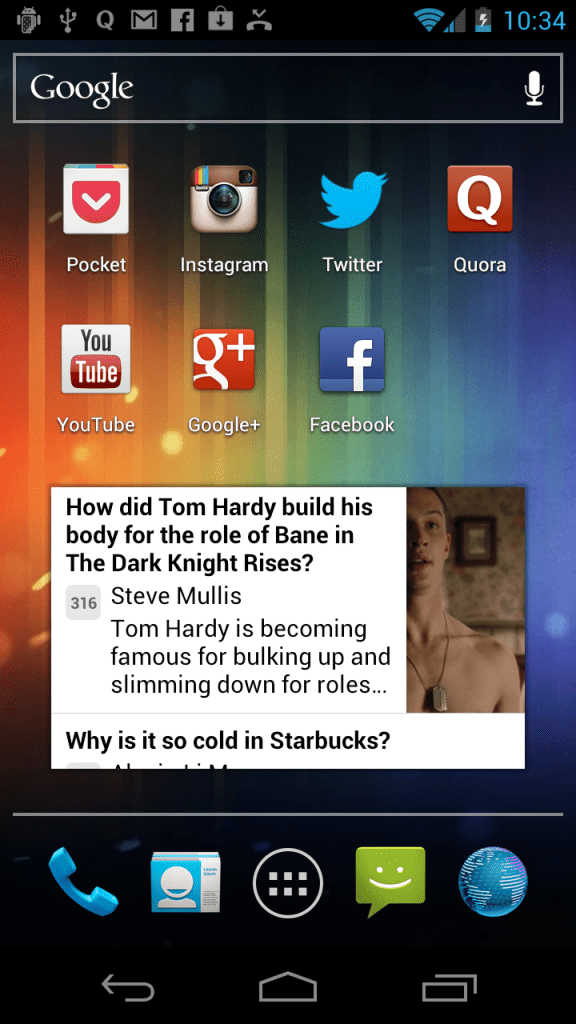After a long wait, Quora just arrived on Android today. The knowledge-sharing site from Facebook’s first chief technology officer Adam D’Angelo and early Facebooker Charlie Cheever sees about a quarter of its traffic coming through mobile devices. So like for so many consumer-facing startups, having a first-class mobile experience is becoming more important than ever.
“The thinking is that this ratio is only going to go up from here,” Cheever said. “A lot of people are going to be almost exclusively using mobile devices to access content, so we want to be on top of that.”
Quora is launching the Android app simultaneously in Google’s Play store and Amazon’s appstore. The app allows you to do almost everything you can on the site — barring a few omissions which will soon be fixed. Those include the ability to create a board and re-post content.
What’s more interesting though is how the company leveraged the unique, extra access that the Android platform offers to developers.
“The look and feel is very different from the iPhone app because we adopted Android’s design standards, based on the guidelines they released with Ice Cream Sandwich (the version of Android that came out late last year),” said Anne Halsall, a designer at the company.
For one, Quora results can appear alongside regular or Google search results anywhere in the phone if you opt in (see above). There is also a deep voice search integration inside the app.
Then there are customizable widgets that can feed your regular stream of questions and boards right to your homepage.
“This should keep users engaged with the news feed over time,” Halsall said.
In terms of Quora’s overall mobile strategy, the size of the company’s dedicated team toward apps is still small. They’re quiet on what additional platforms they might support and the reason it took nearly a year to launch an Android app is mostly because of limited resources. (As a side note, they’re looking to hire additional Android developer talent.)
But the company hasn’t seesawed back and forth between native and HTML5-based development like Facebook.
All of the interactive parts of the app — like the ability to write answers or upvote content — is done natively. But the content itself is displayed using HTML5.
“We didn’t try to be religious about it and take it all the way to where the app is just a wrapper about a mobile HTML5-based site,” Cheever said. “We wanted to do native where it shined best.”
Halsall added,”We try to limit the use of the web to layout and do all of the complex interactions and behaviors using native development. It’s not only good for responsiveness, but it’s good for consistency. You can diverge where you need to in order to make sense of Android.”


